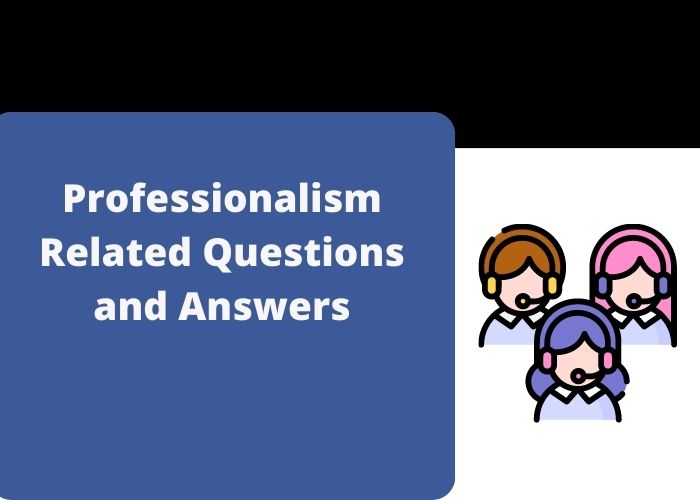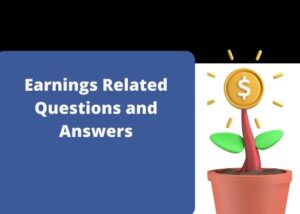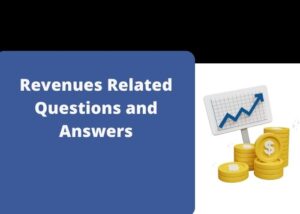1. What steps can I take to maintain professionalism when closing a high ticket client?
A: First, make sure to stay organized, respond to inquiries promptly, and be respectful of the client’s time and needs. Second, communicate clearly and truthfully, and be sure to explain any terms or conditions of the agreement. Third, remain patient and understanding throughout the process, even if the client expresses frustration or discomfort. Finally, be sure to thank the client for their time and business.
2. What types of conversations should I avoid while closing a high ticket client?
A: It’s best to avoid conversations that are not relevant to the client or their business, or that are offensive or inappropriate in any way. Additionally, it’s important to remain focused on the task at hand and avoid getting sidetracked by other topics.
3. How can I ensure that a high ticket client feels comfortable during the closing process?
A: It’s important to be professional and respectful throughout the process, and to make sure that the client feels heard and understood. Additionally, be sure to explain any terms or conditions of the agreement in a clear and concise manner, and be willing to answer any questions the client may have.
4. What should I do if a high ticket client expresses dissatisfaction during the closing process?
A: First, take the time to listen to the client’s concerns and try to understand the source of their dissatisfaction. Once you have a better understanding of the situation, you can address the issue in an appropriate manner and make any necessary changes or modifications to ensure the client is satisfied.
5. How can I best protect my interests when closing a high ticket client?
A: Before entering into an agreement with a high ticket client, it’s important to draft a detailed contract outlining the terms and conditions of the agreement. Additionally, you should also be sure to include any applicable clauses that protect your interests, such as a non-disclosure agreement or a clause for termination of the agreement.
6. What precautions should I take to prevent miscommunication with a high ticket client?
A: First, be sure to communicate clearly and concisely, and be sure to explain any terms or conditions of the agreement in detail. Additionally, it’s important to maintain open lines of communication and address any questions or concerns the client may have promptly.
7. How can I ensure that I provide the best customer service to a high ticket client?
A: First, make sure to remain organized and respond to inquiries promptly. Second, take the time to understand the client’s needs and ensure that they are satisfied with the agreement. Finally, be sure to thank the client for their time and business.
8. What should I do if a high ticket client requests changes to the agreement?
A: First, take the time to understand the client’s needs and make sure that their requests are reasonable. If the changes are reasonable, you should be willing to make the necessary modifications to the agreement. However, if the changes are not in your best interest, you should be willing to negotiate a compromise that is mutually beneficial to both parties.
9. How can I best protect myself from legal issues when closing a high ticket client?
A: Before entering into an agreement with a high ticket client, it’s important to draft a detailed contract that outlines the terms and conditions of the agreement. Additionally, you should also be sure to include any applicable clauses that protect your interests, such as a non-disclosure agreement or a clause for termination of the agreement.
10. How can I ensure that a high ticket client is satisfied with the agreement?
A: First, take the time to understand the client’s needs and make sure that they are satisfied with the agreement. Additionally, be sure to explain any terms or conditions of the agreement in detail, and be willing to address any questions or concerns the client may have. Finally, be sure to thank the client for their time and business.
11. What should I do if a high ticket client expresses dissatisfaction with the agreement?
A: First, take the time to listen to the client’s concerns and try to understand the source of their dissatisfaction. Once you have a better understanding of the situation, you can address the issue in an appropriate manner and make any necessary changes or modifications to ensure the client is satisfied.
12. How can I ensure that a high ticket client is comfortable with the agreement?
A: First, make sure to explain any terms or conditions of the agreement in detail, and be willing to address any questions or concerns the client may have. Additionally, it’s important to remain professional and respectful throughout the process, and to make sure that the client feels heard and understood.
13. What should I do if I am unable to close a high ticket client?
A: First, take the time to understand the reasons why the client is not interested in the agreement. Once you have identified the issue, you can address the issue in an appropriate manner and make any necessary changes or modifications to ensure the client is satisfied. Additionally, it’s important to remain professional and respectful throughout the process.
14. How can I best negotiate with a high ticket client to reach an agreement?
A: First, understand the client’s needs and make sure that they are satisfied with the agreement. Additionally, be sure to communicate clearly and concisely, and be willing to negotiate a compromise that is mutually beneficial to both parties. Finally, be sure to thank the client for their time and business.
15. What should I do if a high ticket client requests changes to the agreement that are not in my best interest?
A: First, take the time to understand the client’s needs and make sure that their requests are reasonable. If the changes are not in your best interest, you should be willing to negotiate a compromise that is mutually beneficial to both parties. Additionally, it’s important to remain professional and respectful throughout the process.
16. How can I best protect my interests when closing a high ticket client?
A: Before entering into an agreement with a high ticket client, it’s important to draft a detailed contract outlining the terms and conditions of the agreement. Additionally, you should also be sure to include any applicable clauses that protect your interests, such as a non-disclosure agreement or a clause for termination of the agreement.
17. What should I do if a high ticket client is not satisfied with the agreement?
A: First, take the time to listen to the client’s concerns and try to understand the source of their dissatisfaction. Once you have a better understanding of the situation, you can address the issue in an appropriate manner and make any necessary changes or modifications to ensure the client is satisfied.
18. How can I maintain professionalism when closing a high ticket client?
A: First, make sure to stay organized, respond to inquiries promptly, and be respectful of the client’s time and needs. Second, communicate clearly and truthfully, and be sure to explain any terms or conditions of the agreement. Third, remain patient and understanding throughout the process, even if the client expresses frustration or discomfort. Finally, be sure to thank the client for their time and business.
19. What should I do if a high ticket client requests changes to the agreement that I am not comfortable with?
A: First, take the time to understand the client’s needs and make sure that their requests are reasonable. If the changes are not in your best interest, you should be willing to negotiate a compromise that is mutually beneficial to both parties. Additionally, it’s important to remain professional and respectful throughout the process.
20. How can I ensure that a high ticket client is satisfied with the agreement?
A: First, take the time to understand the client’s needs and make sure that they are satisfied with the agreement. Additionally, be sure to explain any terms or conditions of the agreement in detail, and be willing to address any questions or concerns the client may have. Finally, be sure to thank the client for their time and business.
21. How can I best protect myself from legal issues when closing a high ticket client?
A: Before entering into an agreement with a high ticket client, it’s important to draft a detailed contract that outlines the terms and conditions of the agreement. Additionally, you should also be sure to include any applicable clauses that protect your interests, such as a non-disclosure agreement or a clause for termination of the agreement.
22. What types of conversations should I avoid while closing a high ticket client?
A: It’s best to avoid conversations that are not relevant to the client or their business, or that are offensive or inappropriate in any way. Additionally, it’s important to remain focused on the task at hand and avoid getting sidetracked by other topics.
23. How can I ensure that I provide the best customer service to a high ticket client?
A: First, make sure to remain organized and respond to inquiries promptly. Second, take the time to understand the client’s needs and ensure that they are satisfied with the agreement. Finally, be sure to thank the client for their time and business.
24. What should I do if a high ticket client expresses dissatisfaction with the agreement?
A: First, take the time to listen to the client’s concerns and try to understand the source of their dissatisfaction. Once you have a better understanding of the situation, you can address the issue in an appropriate manner and make any necessary changes or modifications to ensure the client is satisfied.
25. What steps can I take to ensure that I close a high ticket client successfully?
A: First, make sure to stay organized, respond to inquiries promptly, and be respectful of the client’s time and needs. Second, communicate clearly and truthfully, and be sure to explain any terms or conditions of the agreement. Third, remain patient and understanding throughout the process, even if the client expresses frustration or discomfort. Finally, be sure to thank the client for their time and business.
26. How can I ensure that a high ticket client is comfortable with the agreement?
A: First, make sure to explain any terms or conditions of the agreement in detail, and be willing to address any questions or concerns the client may have. Additionally, it’s important to remain professional and respectful throughout the process, and to make sure that the client feels heard and understood.
27. What should I do if I am unable to close a high ticket client?
A: First, take the time to understand the reasons why the client is not interested in the agreement. Once you have identified the issue, you can address the issue in an appropriate manner and make any necessary changes or modifications to ensure the client is satisfied. Additionally, it’s important to remain professional and respectful throughout the process.
28. How can I ensure that a high ticket client is satisfied with the agreement?
A: First, take the time to understand the client’s needs and make sure that they are satisfied with the agreement. Additionally, be sure to explain any terms or conditions of the agreement in detail, and be willing to address any questions or concerns the client may have. Finally, be sure to thank the client for their time and business.
29. What should I do if a high ticket client requests changes to the agreement that are not in my best interest?
A: First, take the time to understand the client’s needs and make sure that their requests are reasonable. If the changes are not in your best interest, you should be willing to negotiate a compromise that is mutually beneficial to both parties. Additionally, it’s important to remain professional and respectful throughout the process.
30. How can I best protect myself from legal issues when closing a high ticket client?
A: Before entering into an agreement with a high ticket client, it’s important to draft a detailed contract that outlines the terms and conditions of the agreement. Additionally, you should also be sure to include any applicable clauses that protect your interests, such as a non-disclosure agreement or a clause for termination of the agreement.




